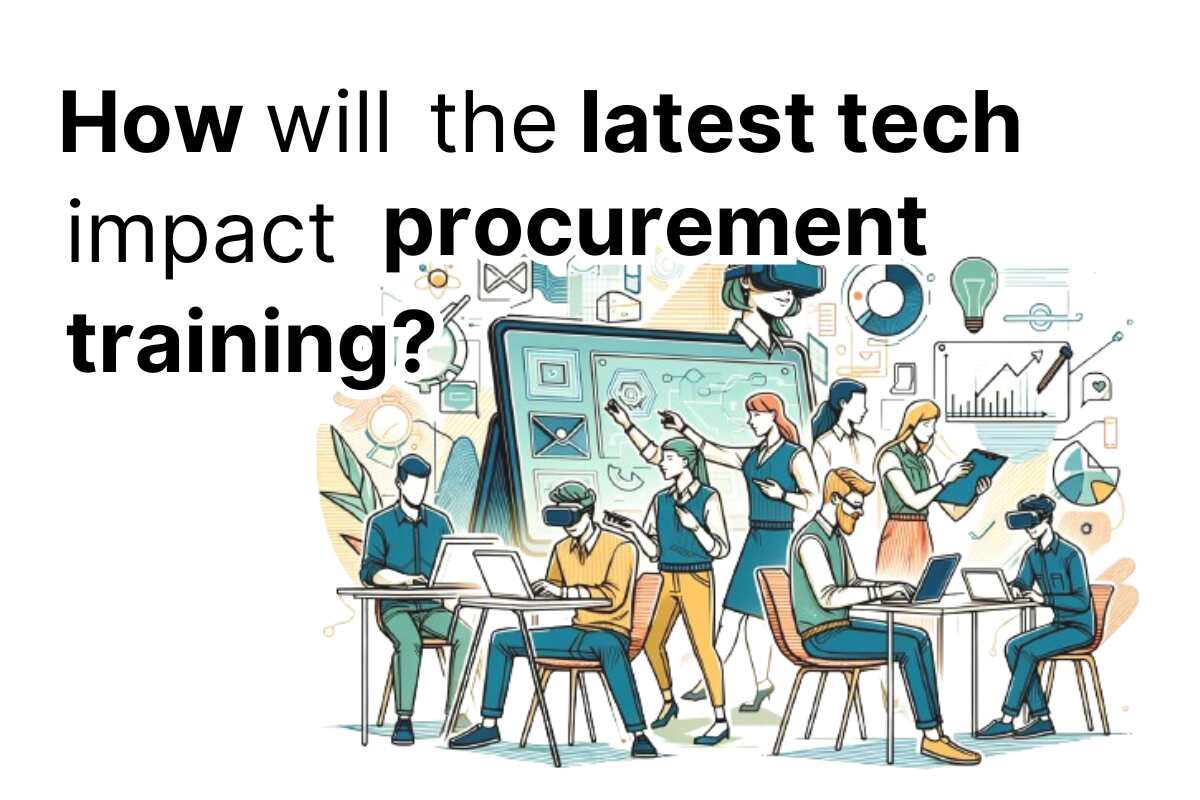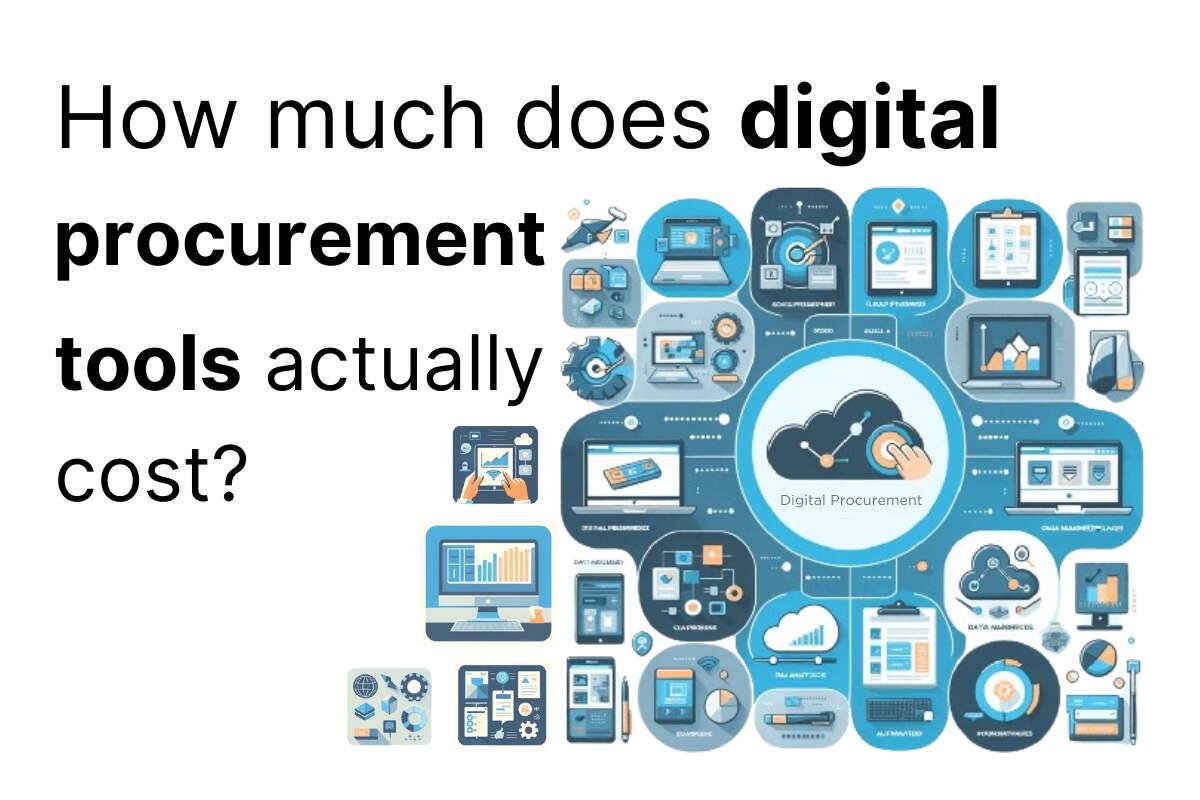Shockwaves were sent through the procurement software industry last December when the Coupa software acquisition was announced. They are arguably the market leader and self-proclaimed “inventor of the Business Spend Management (BSM) category”. Coupa was acquired by private equity giant Thoma Bravo in a cash deal worth $8 billion.
I’m writing a few weeks after a huge wave of layoffs was announced. If the rumours are true, then Coupa has shed up to 30% of its workforce.
Aside from the obviously devastating blow this is to their former employees, what is the wider and longer lasting impact of Coupa’s acquisition on the procurement software industry? And what about the procurement profession and its digital transformation at large?
Coupa software acquisition: Why it happened, and where from here
The recent events are a symptom of the changing face of procurement technology, and software-as-a-service (SaaS) in general. Coupa was founded back in 2006. It really began to start making an impact and challenging the market leaders at the time in around 2011.
The landscape at the start of the 2010s was very different. Cloud-based software wasn’t as much of a thing. On-premises technology in the form of server-based ERP systems were de-rigueur. Cloud hadn’t really made much of an imprint on the Source-to-Pay (S2P) space. Ariba was still predominantly an eAuctions platform and had yet to be acquired by their German parent company SAP, which didn’t happen until 2012.
In its early years, Coupa was bootstrapped and focused on building its product while acquiring a customer base. In 2010, the company raised $7 million in funding. They quickly rose to be the market leader, especially in the untapped area of spend management for indirect procurement teams. They went on to raise additional funding rounds.
In 2016, Coupa went public on the NASDAQ exchange and continued to grow rapidly through both organic growth and acquisitions. In 2020, Coupa announced the acquisition of Llamasoft, a supply chain planning software company, for $1.5 billion.
From early 2021, however, Coupa’s share price tanked from its high of $369.62. It continued to struggle right up to the announcement acquisition in December 2022, with an acquisition price per share of $81.00. That’s less than a quarter of its peak.
What went wrong at Coupa?
If, like me, you don’t understand a lot of financial acronyms, I’ll keep it simple.
Coupa was spending too much on marketing and wasn’t acquiring enough customers. Or at least, wasn’t acquiring enough profitable customers. It was chasing growth at all costs.
As is often the case with once top-performing companies, they made the all-too-familiar mistake of trying to be everything to everyone.
The most visible example of that was trying to position their enterprise-grade, complex, and quite frankly too expensive software as a solution for mid-market businesses.
I’m not a professional analyst, but even from a distance, I thought this was a risky bet. Mid-market businesses don’t have huge software budgets. Nor do they have 6-figure sums to throw at consultancies to implement their software. And that’s also not considering that it was typically the larger consultancies who Coupa were partnering with.
Mid-market businesses, i.e. those from around $50 million up to $1-2 billion in annual revenue, need to see a quick return on any software investment. They also need any software to be fully functional in weeks and months, rather than months and years.
It’s unlikely that mid-market businesses have Procurement Centres of Excellence. Nor can they afford the luxury of having “superusers” to train others on complex software that is not particularly intuitive.
In enterprise organisations, this can be a strength. Lots of features and high complexity can be necessary in these large, relatively mature procurement teams.
But not in the mid-market. You need fast implementation and a good UI/UX. Preferably, you also need a modular structure that can be built upon as organisations mature, and the payback becomes clear from the initial modules. It’s all about small, manageable steps, and building on this, rather than a big bang full scale transformation.
We could also, in hindsight, criticise Coupa’s acquisition of Llamasoft at what turned out to be almost at the top of the market, but I think you get the picture.
The original question for us though is, what does the Coupa software acquisition mean for the procurement software industry and the transformation of procurement in general?
What are Coupa’s strengths?
I feel this has been a bit negative so far, so let’s shift focus onto Coupa’s significant strengths.
They are a market leader, despite some of their recent challenges. Along with SAP Ariba, they have captured an impressive market share. Ask any procurement professional in a Fortune 500 company what procurement software they’re using, and the majority of the answers you’ll hear will be Coupa and Ariba.
Add to this the (subjective) feedback that, generally speaking, users prefer Coupa over Ariba. So, poaching market share from SAP is one way that Coupa could get its mojo back. It’s already taken BMW from under SAP’s nose in their back yard of southern Germany.
Thoma Bravo is also well represented in the enterprise software space when it comes to complementary solutions that could sit alongside or work with Coupa. I’m thinking Mercell, Anaplan and Veriforce as three obvious examples.
Let’s also not forget that it’s a right royal pain in the bottom to switch from one S2P suite to another. So, moving away from Coupa to something else is a significant upheaval.
Not many CPOs and CFOs in large organisations have the appetite or budget to do it. Another reason why being early to the game meant that SAP and Coupa have led the way. It’s not as simple as changing your mobile phone supplier.
And what about Coupa’s weaknesses?
So, where could this all fall down?
There’s an increasing focus on having a “platform” as a single source of truth for your data. Dr. Elouise Epstein of Kearney illustrates this perfectly in her famous spider diagrams.
While it makes sense for Coupa’s existing customers to use it as this platform (the same applies too for any other legacy S2P suite), companies who are digitising their procurement function now have a much better array of choices.
What’s in it for them to choose Coupa, or any legacy source-to-pay suite for that matter?
Not much, if I’m being brutally honest.
Instead of using a S2P suite as their platform, they can also use a vendor intake or master data management solution. Zip’s recent (perhaps optimistic) valuation making them a unicorn would suggest this is a viable alternative. TealBook, Scoutbee and HICX also offer up credible, mature, viable alternatives.
In other words, there’s probably not a huge amount of organic growth to go around any more. It’s more about placing a bet on Coupa as the most likely top dog when it comes to the survival of the older suites.
Personally, I think it’s a good bet.
They will be more agile now under PE ownership than SAP will ever be. Plus, they have a parent company who can help them beat off Ivalua, Jaggaer and others and can cross-sell other complementary solutions. Furthermore, they’ve got their marketplace that they can continue to expand.
So, what I’m saying is…
Despite the Coupa software acquisition by Thoma Bravo, they’ll be OK
Anyone who has followed me on LinkedIn will know that I’ve been a fan of agile, best-of-breed technology. Essentially, everything that Coupa in its current incarnation isn’t.
But that doesn’t mean that they’re not capable of change. It will just take time, and a lot of restructuring. Their market share will not disappear overnight, even if they are losing customers to some of their more agile new competitors. They have time to strategise, re-group and reinvent themselves, perhaps as a more modular offering.
Over time, they may compete with new alt-suites like Raindrop who are growing rapidly on the back of fast implementation, better UI/UX and a price tag that’s a fraction of the legacy players.
Introducing their app store / marketplace offering was an extremely smart move. This enables apps to connect into Coupa’s ecosystem and allows Coupa software users to access functionality and features that Coupa as a base platform doesn’t offer, or doesn’t do particularly well.
Previously, these were blind spots for Coupa. The alt-suites and best-of-breeds aren’t able to offer this click-and-expand functionality yet with niche players. As a side note, Ariba, Jaggaer and Ivalua all offer marketplaces now too, so they’re not the only game in town here.
They will emerge from this much leaner, but likely also more profitable and with a clear message around who they are, and the market they serve.
What does this mean for the procuretech industry?
There will be an explicit recognition that the best way to deploy Coupa, or one of their, is in tandem with best-of-breed applications. Especially those which cover stuff that Coupa and their competitors don’t do so well. Some examples:
There will be more acquisitions. This isn’t over yet. There are procurement tech companies out there who are struggling. It would not be a surprise if another one of what I call the “legacy suites” either gets acquired, or takes on a lot of debt to buy up some best-of-breed solutions to make them stand out.
The growth of digital procurement and the procurement software market will continue unabated. There is so much opportunity and so much catching up to do. Scratch the surface beyond large enterprises, and not many companies have invested into procurement technology.
Increasing compliance requirements and the struggle to find talent will continue to force companies to invest in market intelligence and process automation.
Procurement teams will have to achieve more with less in the years to come. They will only be able to do this with the help of software.
The big difference is that I believe we will see more acquisitions, and fewer players in the all-in-one suite market. It wouldn’t surprise me if someone like SAP or Oracle tries to buy up a bunch of best-of-breed procurement tech solutions. Perhaps one of the rapidly scaling supply chain analytics platforms will expand into procuretech and do what Coupa failed to do with their Llamasoft acquisition. Namely, to be a one-stop shop for both procurement and supply chain requirements.
Only time will tell.
Hang on in there if you’re in the procurement tech space
For now, my heart goes out to anyone affected by the recent round of layoffs by Coupa, Globality, Vendr, TealBook and others. But I genuinely believe there will be plenty of other opportunities for the best people.
This industry is still relatively young and has a lot of growth potential. It’s a great place to be, even though it’s a temperamental beast.
Check out our Software Finder to search and compare over 330 software solutions! And listen to our weekly podcast to stay up-to-speed on all things procuretech.


